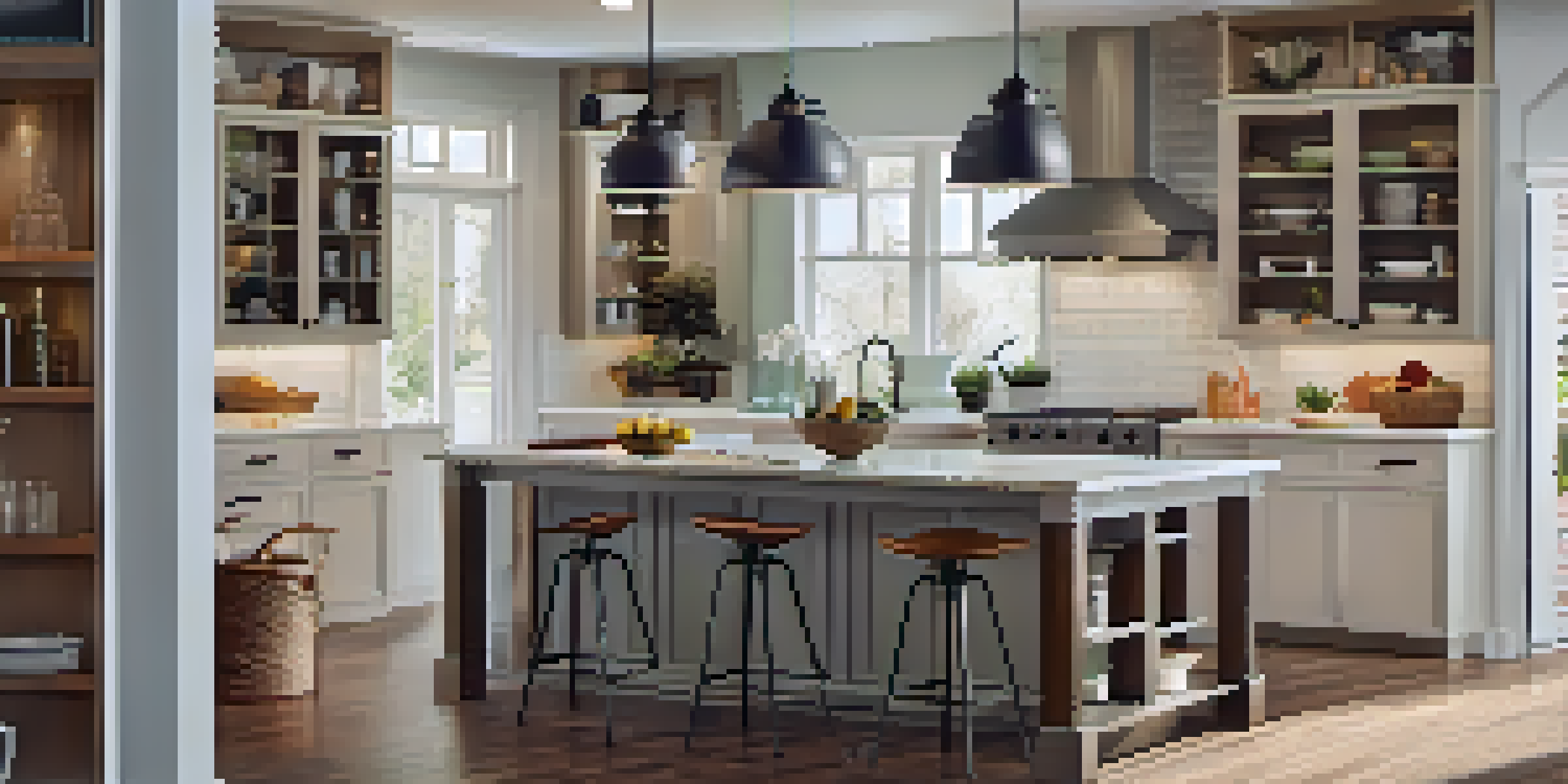Home Renovations: A Guide to Getting the Best ROI

Understanding ROI: Why It Matters in Home Renovations
Return on Investment (ROI) is crucial when considering home renovations. It measures how much value a renovation adds compared to its cost, helping homeowners make informed decisions. A positive ROI means that the money spent on improvements can be recouped when selling the home, making it a vital aspect of any renovation project.
Home is the nicest word there is.
For example, if you spend $10,000 on a kitchen remodel and increase your home’s value by $15,000, your ROI is 150%. This is the kind of scenario every homeowner dreams of! Understanding this concept will guide your choices and investments throughout the renovation process.
In essence, knowing your potential ROI can steer your renovation decisions, ensuring you spend wisely and increase your home’s appeal and market value.
Top Renovations That Boost Home Value
Not all renovations are created equal when it comes to ROI. Some of the most beneficial projects include kitchen remodels, bathroom renovations, and adding curb appeal through landscaping. These areas tend to attract buyers and can significantly enhance your home's value.

For instance, a minor kitchen remodel can yield an ROI of around 80%, making it one of the best investments a homeowner can make. Similarly, updating a bathroom can not only improve functionality but also attract potential buyers, reflecting positively in your home’s market price.
Understanding ROI in Renovations
Calculating Return on Investment (ROI) helps homeowners make informed decisions by ensuring renovations add value compared to their costs.
When planning renovations, focusing on these high-impact areas can ensure that your investment pays off in the long run.
The Importance of Quality Craftsmanship
Quality craftsmanship can make a significant difference in the value of your renovation. Poorly executed work can lead to problems down the line, potentially diminishing your ROI. Investing in skilled professionals ensures that the work not only looks good but also lasts.
The best investment on Earth is earth.
Consider this: if you skimp on quality for a quick fix, you might find yourself spending more money in repairs later. For example, a beautifully renovated bathroom done right can attract buyers, while a shoddy job might turn them away.
Ultimately, prioritizing quality in your renovations will not only enhance your home’s appeal but also secure a better ROI.
Timing Your Renovations for Maximum Impact
Timing can be everything when it comes to home renovations. Renovating at the right time, such as before a market upswing, can significantly increase your ROI. Understanding market trends and the best seasons for renovations can help you strategize effectively.
For example, spring is typically a great time to list your home, making it an ideal time for renovations that enhance curb appeal. A fresh coat of paint or new landscaping can make your home stand out in a competitive market.
Quality Craftsmanship Matters
Investing in skilled professionals for renovations can enhance home value and prevent costly repairs, securing a better ROI.
Being mindful of timing can mean the difference between a good and great ROI, so keep an eye on market conditions and plan accordingly.
DIY vs. Hiring Professionals: Weighing Your Options
Deciding between DIY renovations and hiring professionals is a common dilemma for homeowners. While DIY projects can save money, they often require time, skill, and sometimes, a bit of luck. Weighing the pros and cons is essential to ensure you make the right choice for your project.
For instance, if you have experience in home improvement, tackling smaller projects like painting or landscaping can be effective. However, more complex renovations, such as plumbing or electrical work, are better left to the experts to avoid costly mistakes.
Ultimately, consider your skills, the project scope, and your budget when deciding whether to DIY or hire a professional for your renovations.
Budgeting for Your Renovation Projects
Budgeting is a critical component of successful home renovations. Having a clear budget helps you prioritize projects and avoid overspending. Start by determining how much you’re willing to invest and allocate funds accordingly for each renovation.
For example, if you have a budget of $20,000, you might choose to allocate $10,000 for a kitchen remodel, $5,000 for bathroom updates, and the remaining for other small projects. This ensures you’re not caught off guard by unexpected costs.
Timing is Key for Renovations
Renovating at the right time, especially before market upswing seasons, can significantly boost your home's appeal and ROI.
Remember to also set aside a contingency fund for any surprises that may arise during the renovation process, as this can safeguard your investment and keep your projects on track.
Sustainable Renovations: Adding Value Responsibly
Sustainable renovations are becoming increasingly popular and can also enhance your home’s value. Eco-friendly upgrades, such as energy-efficient appliances, solar panels, and sustainable materials, not only benefit the environment but can also lead to long-term savings on utility bills.
For example, a home with energy-efficient windows can save homeowners money each month, making it a more attractive option for potential buyers. Investing in green renovations reflects a growing trend towards sustainability in the housing market.

Ultimately, choosing sustainable options can increase your home’s appeal and ROI while promoting responsible living.